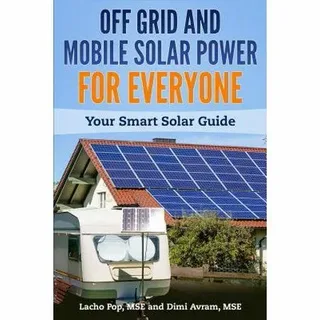As New Zealand households become increasingly eco-conscious and seek ways to reduce energy costs, solar power systems nz have emerged as a sustainable and cost-effective solution. The shift towards renewable energy sources is not just an environmentally friendly move, but also a financially savvy one. In this article, we will explore the cost and savings of installing solar power systems for households in New Zealand, highlighting the key factors that homeowners should consider before making the transition.
Why Consider Solar Power for Your Household?
New Zealand is renowned for its clean, green image, and the adoption of solar energy aligns with this national ethos. The increasing cost of electricity, combined with the country’s abundant sunshine, makes solar power an ideal option for residential properties. By generating your own electricity, you can reduce your reliance on the grid, lower your energy bills, and contribute to the country’s sustainability goals.
Initial Cost of Solar Power Systems
The upfront cost of installing a solar power system is often the primary concern for homeowners considering the switch. Solar installations in New Zealand typically range from $5,000 to $15,000, depending on the size of the system and the quality of the panels. This cost can vary based on factors such as the number of panels, inverter type, and installation complexity.
While this initial investment might seem substantial, it’s important to view it as a long-term financial decision. The price of solar panels has been steadily decreasing over the past few years, making them more accessible to a wider range of homeowners. Additionally, there are often incentives, grants, and rebates available to reduce the financial burden.
What Factors Affect the Cost of Solar Systems?
Several factors play a role in determining the overall cost of a solar power system. These include:
- System Size: Larger systems with more panels will cost more but will also produce more electricity.
- Panel Type: High-efficiency panels tend to have a higher upfront cost but offer better performance and longer lifespans.
- Installation Location: Roof orientation, shading, and angle can influence how much sunlight your system can capture, affecting both cost and energy output.
- Inverter Selection: The inverter converts the DC electricity produced by the panels into usable AC electricity. The type of inverter you choose can impact both cost and efficiency.
Long-Term Savings with Solar Power
One of the most compelling reasons to install a solar power system in your New Zealand home is the long-term savings on electricity bills. By generating your own energy, you reduce the amount of electricity you need to purchase from the grid, which can result in significant savings over time. The average household in New Zealand can save anywhere from $300 to $1,500 per year depending on the size of their solar installation and energy usage.
Payback Period for Solar Power Systems
The payback period is the time it takes for the savings generated by your solar system to cover the initial installation cost. For most households in New Zealand, this period ranges from 5 to 12 years, depending on the system size, energy consumption, and local electricity prices. After this period, the electricity your system generates will essentially be “free,” providing you with decades of energy savings.
Ongoing Benefits of Solar Power
Once the payback period is over, the financial benefits continue. Solar power systems generally last between 25 and 30 years, so homeowners can enjoy free electricity for the majority of their system’s lifespan. Even during the payback period, systems often lead to a reduction in energy bills, helping to ease household budgets.
Government Incentives and Financing Options
To make the transition to solar more affordable, the New Zealand government offers a range of incentives and financing options. The most notable program is the Solar Zero initiative, which helps homeowners by providing affordable loans with zero-interest rates to cover the installation cost of solar systems. Other options include rebates and grants that can help offset the initial investment.
Additionally, some electricity retailers offer solar power purchase agreements (PPAs), allowing homeowners to install a solar system with no upfront cost, in exchange for selling the energy produced back to the retailer at a fixed rate. These options make solar power systems more financially accessible to a broader range of people.
Conclusion: Weighing the Cost and Savings of Solar Power
When considering a solar power system for your household, it’s essential to weigh the cost and savings over the system’s entire lifespan. While the upfront cost can be substantial, the long-term savings on electricity bills, combined with government incentives, make solar power an attractive option for New Zealand homeowners.
By embracing solar energy, you not only lower your household’s environmental footprint but also make a smart financial investment that will pay off in the years to come. As energy prices rise and the cost of solar technology continues to decline, the benefits of installing a solar power system are clearer than ever.


